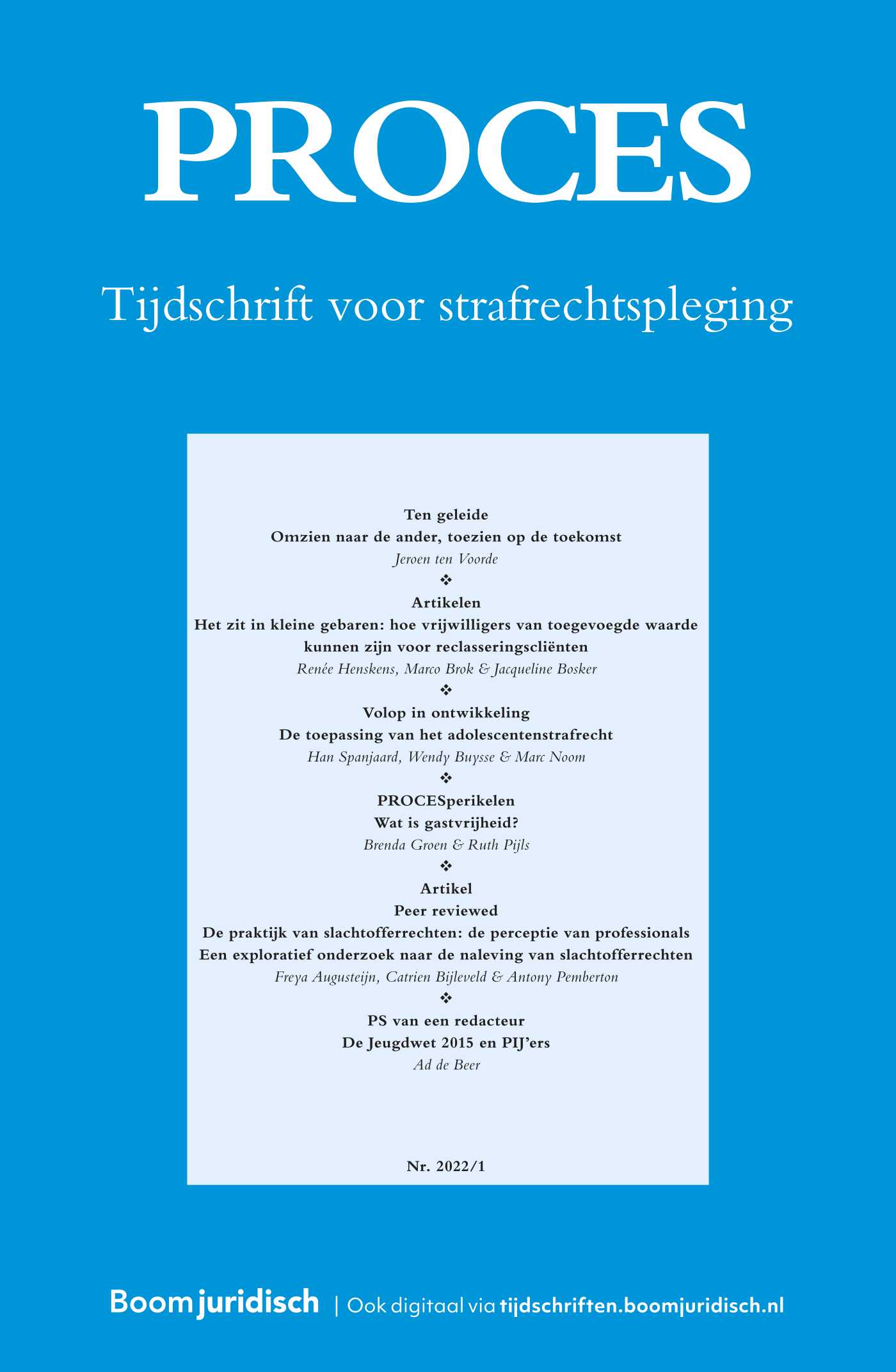|
Almost ten years after the catastrophic attacks in New York and Washington, Dutch counterterrorism legislation has been evaluated. Since (the drafting of) this body of legislation has been highly criticized over the past years, there was a great need for a thorough and objective evaluation, covering the questions that were risen over years concerning the legitimacy, necessity and effectiveness of the counterterrorism legislation. This article aims to show that the political nature of counterterrorism seems to impede on such an evaluation by systematically discussing the flaws and weaknesses of the evaluative study carried out by the Ministry of Security and Justice. |


PROCES
Meer op het gebied van Criminologie en veiligheid
Over dit tijdschriftMeld u zich hier aan voor de attendering op dit tijdschrift zodat u direct een mail ontvangt als er een nieuw digitaal nummer is verschenen en u de artikelen online kunt lezen.
| Redactioneel |
Het strafrecht en ruimte voor bezinning |
| Trefwoorden | editorial |
| Auteurs | Mr. dr. Jolande uit Beijerse |
| Auteursinformatie |
| Artikel |
Is het Nederlandse terrorismebeleid écht zo degelijk vormgegeven?Een bespreking van recent uitgevoerd evaluatieonderzoek |
| Trefwoorden | legislation evaluation, counterterrorism legislation, evaluative research, security culture |
| Auteurs | Mr. dr. Maartje van der Woude |
| SamenvattingAuteursinformatie |
| Artikel |
De verstandelijk beperkte verdachte verhoord |
| Trefwoorden | mental retardation, interrogation, vulnerable suspects, Freedom to speak |
| Auteurs | Mr. Gerben van Oijen |
| SamenvattingAuteursinformatie |
|
Suspects with a mental retardation are a vulnerable group in the judicial investigation. This group of suspects is more susceptible to influence and there is an increased risk of getting an incomplete, inaccurate and inconsistent statement. That is the reason why on an extremely careful manner should be dealt with these suspects. It appears that this degree of care in an interrogatory often will not be respected. This article analyses the current safeguards surrounding the interrogation of mentally retarded suspects. It remains to be seen whether the current rules for the interrogation of mental retarded suspects will safeguard their position adequately. |
| Praktijk |
Van de wijzen en de gek, of de nieuwe kleren van de keizer?Psychiatrische en psychologische rapportage in strafzaken |
| Auteurs | Dr. Ben Blansjaar |
| Auteursinformatie |
| Artikel |
Verplichte nazorg effectief? |
| Trefwoorden | juvenile delinquents, aftercare, re-adjustment, placement in Institution for Juvenile offenders |
| Auteurs | Dr. Maartje Timmermans en Dr. Katrien de Vaan |
| SamenvattingAuteursinformatie |
|
In the near future juvenile delinquents who return from a PIJ-measure (Placement in Institution for Juvenile Offenders) will receive aftercare on a compulsory basis. Aftercare aims at a successful re-adjustment in society, contributing to reduced recidivism. In 2008 a pilot was set up in which 18+ PIJ youth were offered voluntary aftercare. Commissioned by the Ministry of Justice, Regioplan Beleidsonderzoek investigated the experiences in the pilot. Results show that the content of the aftercare is mainly focused on practical issues. Support on (further) development of psychosocial abilities is minimal. The authors make recommendations that could be relevant in setting up the content of obligatory and effective aftercare. |
| Column |
Oom Henk |
| Trefwoorden | Column |
| Auteurs | Jaap A. van Vliet |
| Auteursinformatie |
